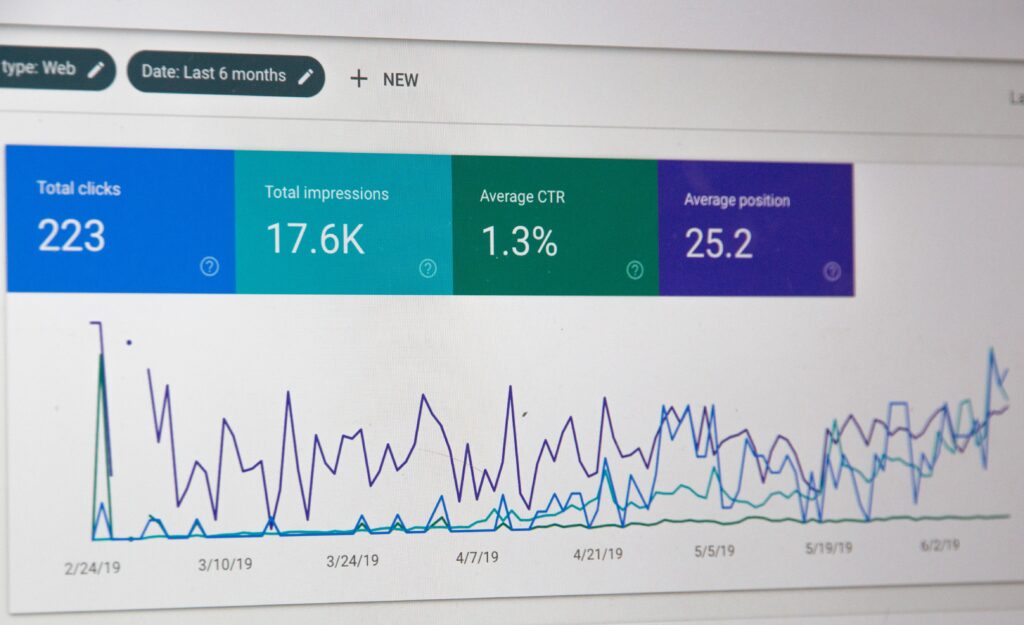In the world of online content, search engine rankings play a pivotal role in determining the visibility and success of websites. Have you ever wondered how search engines decide which websites should appear at the top of your search results? It’s a fascinating process that involves complex algorithms, keywords, and website authority. This article aims to shed light on the intriguing world of search engine rankings, providing you with a better understanding of how search engines determine the order in which websites appear in your search queries.
Understanding Search Engine Rankings
Search engine rankings are a crucial aspect of online visibility and success. When you search for something on a search engine like Google, the order in which the results appear is not random. Search engine rankings determine the position of a website’s listing on the search engine results pages (SERPs). In this article, we will delve into the factors that influence search engine rankings and learn more about on-page SEO, off-page SEO, technical SEO, content quality, user experience, and website speed.
What are Search Engine Rankings?
Search engine rankings refer to the position a website’s listing occupies on search engine results pages when a user enters a specific query. For example, if you search for “best pizza place,” the websites that appear at the top of the search results have higher rankings than those below. Search engines use complex algorithms to analyze various factors and determine the relevance and authority of a website’s content to match it with the user’s query.

How do Search Engines Determine Rankings?
Search engines evaluate several factors to determine rankings. These factors include keyword relevance, website authority, user experience, and the overall quality of the website’s content. Search engines utilize sophisticated algorithms that consider both on-page and off-page elements to deliver the most relevant results to users. These algorithms undergo frequent updates to improve the accuracy and effectiveness of search results.
SERPs (Search Engine Results Pages)
SERPs, or Search Engine Results Pages, are the pages that display the results of a search query. Each SERP typically contains a combination of organic results, paid advertisements, featured snippets, and other search engine-specific features. The main goal of search engine optimization (SEO) is to improve a website’s ranking on the SERPs to increase its visibility and organic traffic.

Why are Search Engine Rankings Important?
Increased Visibility and Organic Traffic
Ranking higher on search engine result pages significantly improves your website’s visibility. Websites that appear at the top of the results page have a greater chance of being clicked, as users tend to trust and prioritize those listings. The higher your website ranks, the more organic traffic it is likely to receive.
Building Credibility and Trust
When your website consistently ranks high on search engine results pages, it establishes credibility and trust among users. Internet users often consider top-ranking websites as more trustworthy and authoritative. This perception can lead to increased brand awareness and customer trust.
Higher Conversion Rate
Ranking well on search engine result pages is essential for achieving a higher conversion rate. When users find your website through organic search and discover relevant and valuable content, they are more likely to convert into customers or take the desired action, whether it’s making a purchase, signing up for a newsletter, or requesting more information.
Outranking Competitors
Search engine rankings directly impact your ability to outrank competitors. When you achieve a higher ranking than your competitors for relevant keywords, you gain a competitive advantage by capturing more organic traffic and potential customers. This increased visibility puts you ahead in the race, leading to better business opportunities.
Factors Influencing Search Engine Rankings
Several key factors influence search engine rankings. Understanding and optimizing these factors can improve your website’s visibility and increase your chances of ranking higher on search engine result pages.
On-page SEO Factors
On-page SEO factors are elements that you have direct control over on your website. Optimizing these factors helps search engines understand the relevance and value of your content. Key on-page SEO factors include:
- Title tags and meta descriptions: Crafting compelling and informative title tags and meta descriptions that accurately describe your content.
- Keyword usage and optimization: Strategically incorporating relevant keywords throughout your content without overstuffing.
- URL structure: Ensuring that your URLs are concise, descriptive, and include target keywords.
- Heading tags: Properly structuring your content using heading tags (H1, H2, etc.) to improve readability and signal content hierarchy.
- Content quality and relevance: Providing valuable, well-written, and original content that satisfies user intent.
- Internal linking structure: Building a logical and relevant internal linking structure to help users navigate your website easily.
Off-page SEO Factors
Off-page SEO factors refer to external signals and activities that influence your website’s ranking. These factors emphasize the reputation and authority of your website. Key off-page SEO factors include:
- Backlinks and link building: Earning high-quality backlinks from reputable and relevant websites, indicating your website’s credibility and authority.
- Social media signals: Engaging and sharing content on social media platforms to increase exposure and enhance your online presence.
- Brand mentions and reputation: Establishing your brand’s online reputation through positive mentions and reviews.
- Guest blogging and influencer marketing: Collaborating with industry influencers and publishing guest posts on authoritative websites to reach a wider audience and build backlinks.
Technical SEO Factors
Technical SEO factors relate to the technical aspects of your website that impact its visibility and accessibility to search engines. Key technical SEO factors include:
- Website architecture and navigation: Designing a clear and logical website structure that allows search engines and users to easily navigate through your pages.
- Page load speed: Optimizing your website’s speed to deliver a fast and seamless user experience.
- Mobile friendliness and responsiveness: Ensuring your website is mobile-friendly and responsive across different devices and screen sizes.
- Secure and accessible website: Implementing proper security measures, such as HTTPS, and making your website accessible to all users, including those with disabilities.
- Structured data markup: Adding structured data markup to help search engines understand and display your content more effectively.
User Experience Factors
User experience factors play a critical role in search engine rankings. Positive user experiences indicate high-quality and relevant content, leading to better engagement and higher search rankings. Key user experience factors include:
- Website design and layout: Creating an aesthetically pleasing and user-friendly website design that aligns with your brand identity.
- Navigation and ease of use: Ensuring intuitive and easy navigation throughout your website, allowing users to find what they’re looking for quickly.
- Page loading speed: Optimizing your website’s performance to reduce loading times and enhance the overall user experience.
- Mobile responsiveness: Making sure your website displays and functions correctly on all devices, including smartphones and tablets.
- Content accessibility: Ensuring your content is accessible to all users, including those with visual or hearing impairments.

Content Quality
Quality content is a crucial factor in search engine rankings. Search engines strive to deliver the most relevant and valuable content to users, making it essential to optimize your website’s content. The following aspects contribute to content quality:
- Originality and uniqueness: Producing original content that stands out from competitors and offers a fresh perspective.
- Relevance and informative content: Creating content that directly addresses user queries and provides comprehensive and valuable information.
- Keywords and LSI: Strategically incorporating target keywords and utilizing Latent Semantic Indexing (LSI) to improve topical relevancy.
- Readability and formatting: Presenting content in a reader-friendly manner with proper formatting, headings, paragraphs, and bullet points.
- Multimedia elements: Enhancing the content with multimedia elements, such as images, videos, and infographics, to engage users and provide a visually appealing experience.
User Experience
User experience is a critical factor in determining search engine rankings. When users have a positive experience on your website, they are more likely to stay longer, engage with your content, and convert. The following factors contribute to a positive user experience:
- Website design and layout: Creating a visually appealing and user-friendly design that aligns with your brand identity.
- Navigation and ease of use: Ensuring intuitive and easy navigation throughout your website, allowing users to find what they’re looking for quickly.
- Page loading speed: Optimizing your website to load quickly, reducing bounce rates and keeping users engaged.
- Mobile responsiveness: Ensuring your website looks and functions correctly on all devices, providing a seamless experience on smartphones and tablets.
- Content accessibility: Making sure your content is accessible to all users, including those with disabilities, through proper design and alternative text for images.
Website Speed
Website speed plays a crucial role in both user experience and search engine rankings. A slow-loading website can be frustrating for users, leading to high bounce rates and lower search rankings. Here are some key aspects of website speed:
- Importance of website speed: Fast-loading websites provide a better user experience and increase the chances of users staying and engaging with your content.
- Factors affecting website speed: Several factors can impact website speed, including server response time, large file sizes, and inefficient code.
- Tools for measuring and improving speed: Utilize tools such as Google PageSpeed Insights and GTmetrix to measure your website’s speed and identify areas for improvement.
- Optimizing image sizes and formats: Compressing images and using appropriate image formats can significantly reduce load times while maintaining visual quality.
- Caching and minification techniques: Implementing caching mechanisms and minifying CSS and JavaScript files can help optimize your website’s performance.
By understanding search engine rankings and the factors that influence them, you can make informed decisions to improve your website’s visibility, credibility, and user experience. Implementing effective on-page SEO, off-page SEO, technical SEO, and content strategies will increase your chances of ranking higher on search engine result pages and drive organic traffic to your website. Remember, search engine optimization is an ongoing process that requires continuous monitoring, adaptation, and improvement to stay ahead in the digital landscape.
